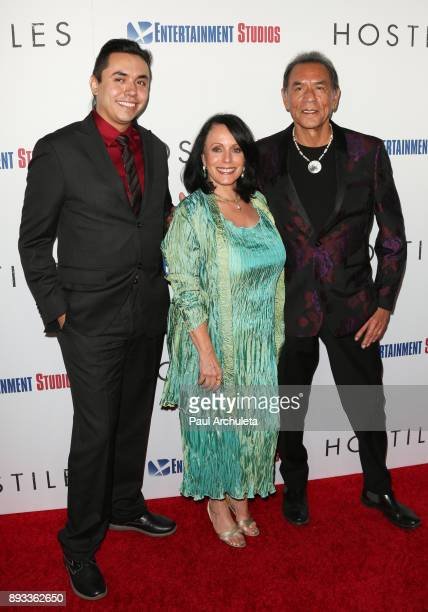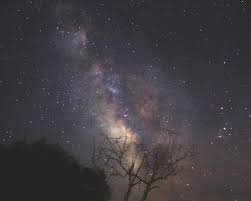
Cherokee Actor: Kholan Studie Starring in Short Film "The Dark Valley"
You have to respect an artist for taking bold steps. That's what we do. We're here to capture the harsh realities and interpret those realities for purposes of entertainment, as well as processing tools for deep intellectual thinking. When I cross artists who are willing to truly reach deep inside themselves to find an honest portrayal of the world, I immediately recognize game. These are the real ones. The ones envied by the weak, the unwilling, the carcasses of outdated memories.
When I heard Kholan Garrett Studie starred in a short film titled "The Dark Valley," it immediately peeked my interest. The landscape is set in Los Angles, and the film style is a hyper blend, and it's bold. I'd call it Film Noir meets French New Wave and Dogme 95. It's unflinching. Bitter sweet and succinct.

As you already know, Kholan Studie is the son of the Academy Honorary Award winning Cherokee actor, Wes Studi, and he also happens to be the grandson of Jack Albertson, who won an Academy Award, and was forever remembered for his role on the 1970’s hit television series “Chico and the Man."
I was approached by the film's director, TJ Morehouse, who is originally from Pryor, Oklahoma before he transplanted into the film industry, traversing on both the east and west coast. He is a 27 year veteran in entertainment and has served in many roles. He sent me a private link to the "The Dark Valley," and I felt lucky to have an opportunity to view this film. It will be shown for audiences for the first time on September 11, 2021 at the Burbank Film Festival.
During an interview with the Tulsa World, Morehouse said, “We have won or placed in all film festivals that have accepted us and we have applied to almost 70 festivals in total including Sundance, Slamdance, SXSW, Austin film fest and Writers Conference, which we almost won in 2018 with the screenplay ‘June in California,’ and other prestigious festivals.”

"The Dark Valley" captures perfectly a contrast to human idealism, where we must examine the darker parts of our perpetual slumber, where we jolt out of the most beautiful dream to wake in horror at the truth of our surroundings. Kholan Studie's character must come to terms with the underbelly of Los Angeles and his own psyche living within such sharp contrast between dark and light.
Morehouse uses voice-over along with black-and-white cinematography to create the noir feel for the film. It immediately sets the dark tone and keeps the audience guessing. In fact, it's the blend between the mundane and the subtly disturbing that makes the ending of the film both perfect and shocking. It all makes sense, but it'll catch you by surprise. Morehouse does a beautiful job of distracting and enticing the audience along.
Between Kholan Studie's acting and TJ Morehouse's directing, "The Dark Valley" is sure to continue to win awards. I sing praises for the film and admire the bold and striking artistic style. And it seems fitting to be making the rounds at film festivals as the new FX/Hulu series "Reservation Dogs" delights audiences with dark comedy. Not only does the short film star a Native actor, it also dares to be original, and dares to provoke the soft underbelly of the American Dream.

Giving Back: Murrow Indian Children's Home Needing Assistance
I get mentally stuck sometimes, and frustrated, when I think of the disparity rates in the communities I serve. I'm Cherokee and Kiowa. I live in Tahlequah, Oklahoma and work for Indian Child Welfare. I've worked my entire career serving Native communities, working diligently to correct the disparity rates, and every time I see a Native person walking down the street strung out on meth, fidgeting and impulsively picking at their skin (the telltale signs of meth addiction), it breaks my heart. I get frustrated at the disparity rates among Native Americans and see first hand the negative impacts caused by historical trauma.

There is one way to change the disparity rates and that's by giving to a well vetted Native organization, like the Murrow Indian Children's Home in Oklahoma. It's more commonly called the Murrow Home for us locals. They provide care for Native children and are currently in need of specific items. Below you'll find a link to their official Facebook page:
We all want to help and often we don't know how. While I've dedicated my career to working with Native youth, many of us have occupations outside this field but equally want to contribute. My recommendation is to go through the process of vetting Native organizations. Don't wait for a Native person to do so. It can be frustrating for people of color to always have to do the leg work. If I can care enough about Native people that I'll do the work to track down organizations and talk to employees from specific organizations, then I expect anyone could do the same. Not to be harsh, but people of color are not slaves to someone else's enlightenment. Although, when I see a Native organization sending out a call, like the one on the Facebook page above, I'll go out of my way to help them meet their needs.
If you'd like to know more about the Murrow Indian Children's Home here is a link to their website: The Murrow Home. Also, here is a link to their amazon wish list page: Amazon Smile Murrow Home. Additionally, if you'd like to learn more about the history of The Murrow Home here is an article: Cherokee Phoenix Article on The Murrow Home.
I started my career working with a Native group home so my heart is close to helping children in those troubling circumstances. I know what it's like to mentor youth who need stability and safety in their lives, who need a strong role model. The Murrow Home is a rare group home that works specifically with Native youth, including Cherokee children from tribally specific Cherokee communities. If you're in a position to give back, please do so by reaching out to The Murrow Home directly or following one the links above.
(Image above was borrowed from flickr)
Tuning into the Nuances of the Void
There are two things most dangerous: apathy and stagnation. For me? The former leads to the latter. It's a cycle of violence I've always struggled to overcome. It's like when I'm gourd dancing with my family, and I'm trying to predict by cadence and rhythm the switching of the beat so I can anticipate the appropriate next move--a move which keeps me in sync with my community but ultimately with my choices. So that's a blend of artistry and pseudo-intellectualism to say something very simple: I get bored easily. I'll save the deep psychological reading of this behavior to my haters. They're likely more in tune with its nuances anyway.There are times in my life where I live in life and throw myself into passions deep and plentiful and I'm so deep in the subconscious I don't even have to breath. I've mutated, growing gills to pick up words and metaphors and I twist them into a story. Story gives me life.
So that's a blend of artistry and pseudo-intellectualism to say something very simple: I get bored easily. I'll save the deep psychological reading of this behavior to my haters. They're likely more in tune with its nuances anyway.There are times in my life where I live in life and throw myself into passions deep and plentiful and I'm so deep in the subconscious I don't even have to breath. I've mutated, growing gills to pick up words and metaphors and I twist them into a story. Story gives me life. Then there are times in my life where the void has no echo and the sound of my voice carries only inches from my mouth. If I screamed it would carry further, but I don't scream anyway so that doesn't matter. When the stagnation grows up my feet and grabs my ankles, through my veins and into my throat, my voice is lost. In desperation I can see apathy moving toward me like dark matter carrying a wave of asteroids ready to crush me. And you say the void has no noise. But it's loud. Louder than me, which is loud enough, and is the only decibel of importance.Then by sheer willpower, I lift my head, look at the computer screen, and write.
Then there are times in my life where the void has no echo and the sound of my voice carries only inches from my mouth. If I screamed it would carry further, but I don't scream anyway so that doesn't matter. When the stagnation grows up my feet and grabs my ankles, through my veins and into my throat, my voice is lost. In desperation I can see apathy moving toward me like dark matter carrying a wave of asteroids ready to crush me. And you say the void has no noise. But it's loud. Louder than me, which is loud enough, and is the only decibel of importance.Then by sheer willpower, I lift my head, look at the computer screen, and write.